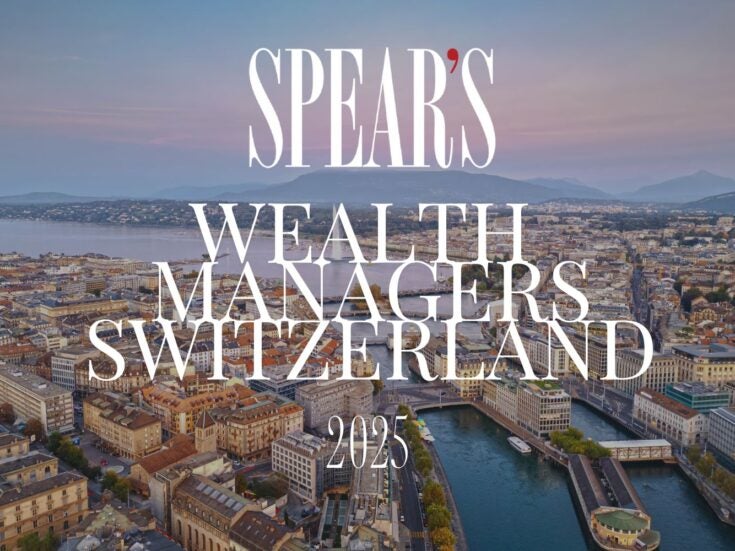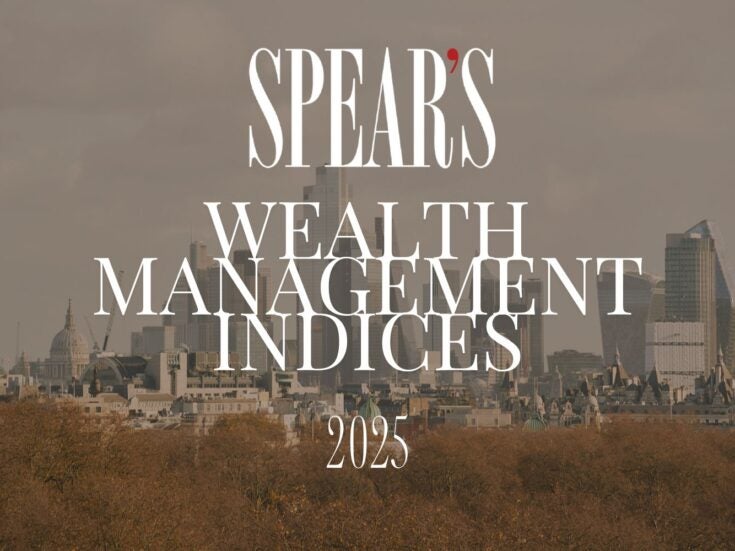
With positions from the government to the Tate, Lord Browne has never been more in demand. He tells Josh Spero what life is like Beyond Petroleum
AFTER SPENDING 40 years in one place — or rather, 40 years in one company in a variety of places, from Alaska to Iran — John Browne, now Lord Browne of Madingley, seems to be embracing the variety of opportunities that captaincy of industry offers like a collector trawling an art fair: with careful passion and passionate care. He left BP in 2007 in circumstances which are too well-known to rehearse in detail, and seemed to retreat out of an alternately mocking, quizzical and critical public view.
He could not have chosen a better time to emerge back into the world than the past couple of years: everyone from charities and arts organisations to private companies and the government is now seeking the business experience that Lord Browne brings with him. Like that art collector, Lord Browne has his eye on the bigger picture.
It seems that no sector is now unwilling to draw on the skills of businessmen, particularly distinguished businessmen who are as well known in the Houses of Parliament as they are on the floor of the FTSE, in these uncertain times. Paradoxically, all the uncertainty has led to a very clear vision: every organisation should be more businesslike — more professional, more organised, better-run and better-thought-through. If the first decade of the 21st century was the high water mark of government provision, the second will be one of self-reliance and ingenuity, where the private sector — or at least private-sector methods — takes the lead. This is where Lord Browne comes in.
His latest appointment is as chairman of the advisory board of Stanhope Capital, the asset-management firm founded by Daniel Pinto and Julien Sevaux. (A source within Stanhope suggests that two similarly high-profile names will be joining the advisory board by the end of 2010.) What Stanhope were hoping he would do, he says, ‘is help them think about their future business development’. A question about whether this means he will be helping to attract investments from endowments and charities, as one report suggests, is met obliquely: ‘It’s all about the future business development.’ He then magisterially elides into praising Stanhope’s staff.

Another appointment was a managing directorship of Riverstone, ‘a private equity firm in unconventional energy’, in whose offices in Burlington Gardens we meet. He is not keen to talk about Riverstone, however. In fact, his initially terse manner closes off a number of avenues of enquiry, but he cannot be faulted for his openness about this: as soon as we start to talk, he tells me that he is suspicious of me. I reply that I am suspicious of myself, too, so that makes two of us; now can we get on?
No doubt he has good reason to be suspicious of journalists, but to assume that all a journalist wants is to talk about his personal life is for Lord Browne to pay himself hardly the respect others do.
ONE BODY THAT is sorely in need of professionalisation is the UK government, or rather its constituent departments. That is why David Cameron asked Lord Browne to be the government’s lead non-executive director, in which role he will help to select non-executives for departmental boards. The Cabinet Office’s website gives every impression that the non-execs he chooses should help run their departments like proper private-sector companies, from devising business plans to forming remuneration committees.
Government (of all colours) has hardly been business-minded thus far. ‘No — it has a mixed track record, I would say. It depends a lot on the secretary of state and the particularities of the actual department. This is different, in that it is the determination of this government, as I understand it, to try to do this in a uniform way and do it in a sustainable way.’ This is the permanent way, and the luxuriating tendencies of those super-subtle Whitehall mandarins may be in danger.
The previous administration also called on Lord Browne, this time to lead an independent committee into the funding of higher education. The review, which was published in October, recommended letting universities lift the cap on fees and altering the entire basis of how they are funded, moving from state to student support. This seems very much like preparation for a world where the public purse has tighter strings.
The timing of Lord Browne’s appointment as lead non-exec was perhaps not ideal, coming in the middle of the Deepwater Horizon spill, America’s worst oil leakage and the latest event which challenged BP’s reputation for competence. During Lord Browne’s tenure as CEO, there was also the Texas City refinery fire and the Prudhoe Bay pipeline fractures; lives were lost. However, he has robustly rejected accusations of cutting down the number of engineers at the company, sacrificing safety for cost.
He is clear that BP in his tenure was not just aiming at profits but also at an almost moral end: ‘I firmly believed first that business is something which can make society better. Business is a force for good. That was one of my driving philosophies, do the business in the right way.’

This was true even when it made him unpopular: the American Petroleum Institute declared that BP had ‘left the church’ over its public concerns about climate change. Lord Browne himself is clear that clean and renewable energy sources are coming, even if ‘it takes time for both policy and technology to catch up with desire. Everyone would like clean energy, but when you ask them if they’d pay twice as much, they say no.’
Some of the protests resulting from the Deepwater Horizon spill were aimed at recipients of BP’s corporate sponsorship of the arts: people picketed the BP Portrait Award at the National Portrait Gallery and threw buckets of molasses on the front steps of Tate Britain, another beneficiary. This must have hurt acutely, since Lord Browne became chairman of the board of trustees at the Tate museums in 2009, although it would seem foolish even to ask.
THE TATE IS another institution to which he is bringing his business experience, although — in common with his other current positions — he refuses to admit to any sort of vision, anything which might give away a too intimate thought, even about business. He is leading the campaign to raise £200 million for the Herzog and de Meuron extension to Tate Modern, but he also stresses that Tate is becoming more entrepreneurial, not just on its own account but also to help other galleries and museums ‘with advice and guidance on what to do in very difficult circumstances that are today, as arts and culture are not immune from government cutbacks’. When he talks of the Tate surviving a cut in its subsidy, he says: ‘We’re having to examine what we’re doing; there will be trade-offs, but we’ll just do it as a business.’
This new phase of his life seems to be thrilling to Lord Browne: ‘Well, every day is a new discovery and part of learning, and I hope it stays like that for ever.’ But the thing he stresses is that, finally, he is his own man: ‘I worked for one person — I worked for the board of directors of BP, and as CEO you always remember that. In this environment, I don’t work for one person — I work for a variety of people, I work with a variety of people, and I think that probably marks the change that a lot of people go through. It allows you to make different selections. After all, there has to come a point in time where you own your time. Now, and at the age of 63, it seems to me you should begin to have some more control over your time.’
So does he feel liberated? ‘“Liberated” is a very big word — I’ve always felt liberated, it’s just different versions of being liberated.’
Illustration by Richard Beacham







